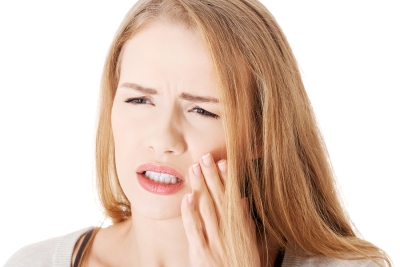SIGNS YOU MIGHT BE DAMAGING YOUR TEETH AT NIGHT
Millions of adults and children seek treatment from their family dentists each year for pain, discomfort, and misalignment brought on by bruxism. Bruxism, which is characterized by teeth grinding and jaw clenching, is a difficult condition for dental patients to monitor on their own as it typically occurs while they are sleeping. Here are several signs you might be damaging your teeth at night:
Pain in the Ear without Signs of Inflammation or Infection
Have you recently been experiencing pain in one or both of your ears that feels like an infection is present? This sensation is a common symptom of bruxism, since the constant act of clenching the jaw leads to pain around the temples which is mistaken for an ear ache. After ruling out inflammation or infection with an ear, nose, and throat specialist, consult with your Belmont dental team about your pain and your concerns about bruxism.
Chipped or Fractured Teeth Not Caused by Injury or Trauma
Another common sign that you may be damaging your teeth at night is the appearance of chipped or fractured teeth without any obvious case, like an accident or injury. As bruxism patients unconsciously grind their teeth, they tend to wear down both the enamel and the crown over time. If you are suffering from bruxism, your dentist may recommend that you undergo a crown treatment or another similar dental restoration procedure in order to fix any damaged teeth.
Increased Sensitivity in the Teeth and Jaw
One final sign that you are unconsciously causing damage to your teeth as you sleep is a heightened level of sensitivity and pain in both the teeth and jaw during the daytime. Constant clenching and grinding wears down the jaw and increases inflammation in its joints, which can leave you experiencing constant toothaches. The best way to address this pain and put an end to it for good is to consult with your Belmont dental team about effective treatments for your bruxism.

